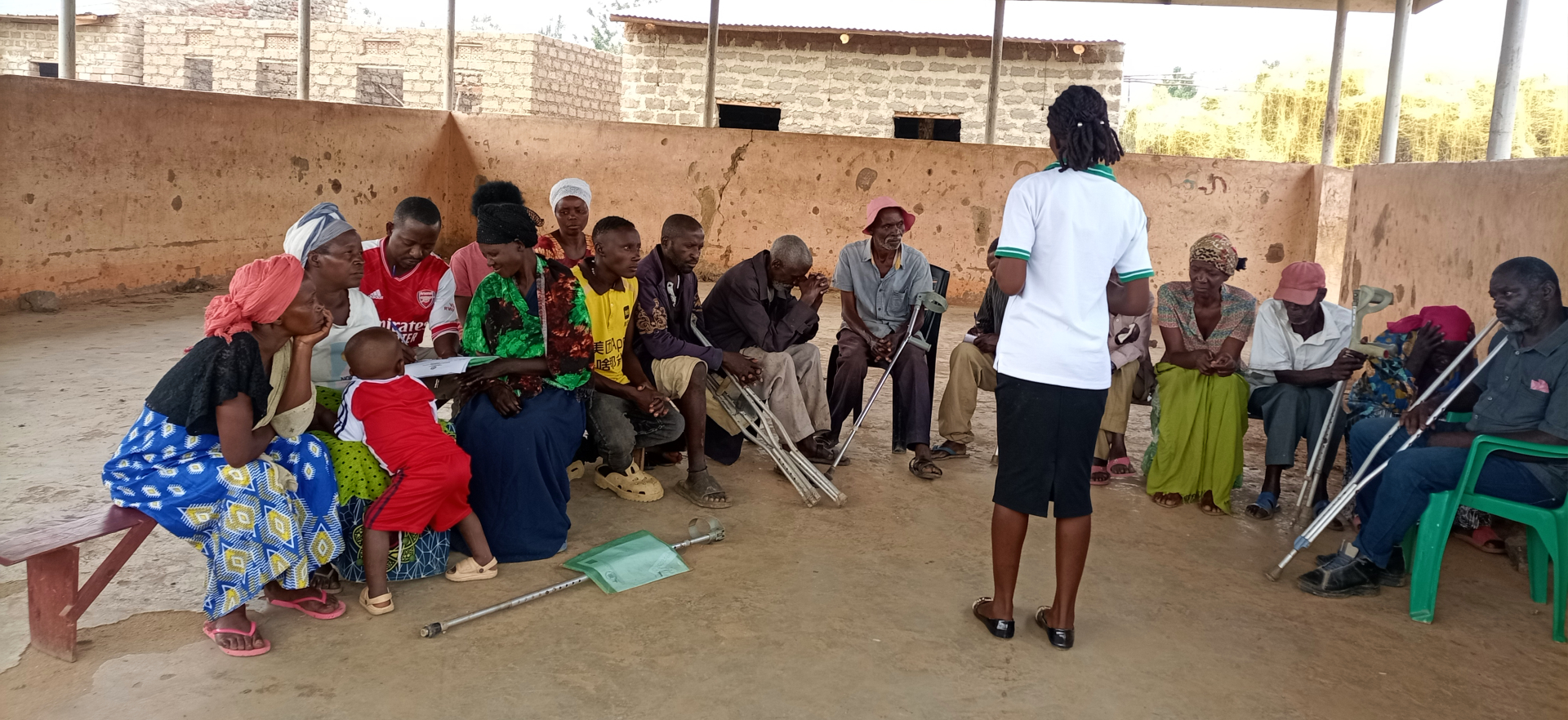Shared Action Africa Expands SRHR Services to People with Disabilities in Nakivale and Oruchinga Refugee Settlements.
Nakivale and Oruchinga refugee settlements in Isingiro District, Uganda, have become critical hubs for humanitarian support, hosting refugees who have fled conflict and instability in their home countries. Among these populations, people living with disabilities face significant barriers to accessing essential health and social services. Recognizing this gap, Shared Action Africa, a leading humanitarian and development organization, has intensified efforts to ensure that Sexual and Reproductive Health and Rights (SRHR) services are accessible to all, including individuals with physical disabilities.
Atamba Kobuhwezi, a midwife with Shared Action Africa stationed at Oruchinga Refugee Settlement, explained that the organization recently conducted an SRHR session focused on the inclusion of people with disabilities in health service utilization. She noted, “This was an SRHR session on how we can include people with disabilities in the utilization of SRHR services. We encouraged the youth to also join the groups of people with disabilities, as the older generation is already doing.”
During the session, participants outlined the daily challenges they face, including the inability to afford treatment, frequent stockouts of essential medications, and limited access to appropriate mobility aids such as wheelchairs and walking sticks. “They requested support, including a camp specifically for people with disabilities, staffed with specialists and equipped with medicines, scans, and mobility aids,” Kobuhwezi added. The session took place in Kisoro Village within the Oruchinga settlement, highlighting Shared Action Africa’s grassroots approach to understanding and responding to local needs.
A key recommendation from the organization was the establishment of unified groups for people with disabilities. By organizing collectively, beneficiaries can ensure that assistance is distributed efficiently and reaches those most in need. “We encouraged them to have a group as one for people with disabilities so that once any help comes in, they can be supported immediately,” Kobuhwezi explained. This initiative aligns with Shared Action Africa’s broader mission to enhance the inclusion of marginalized communities in essential health services.
In addition to forming groups, the organization emphasized leveraging community-based structures such as Village Health Teams (VHTs) and peer educators. These networks facilitate access to healthcare facilities closer to beneficiaries’ homes, mitigating barriers related to distance, cost, and mobility challenges. “We encouraged them to use the VHTs and peer educators to easily access treatment from nearby facilities,” Kobuhwezi added.
Shared Action Africa’s interventions underscore the recognition that refugee populations are not homogenous, and different subgroups require tailored approaches. For people with disabilities, the combined challenges of displacement, physical limitations, and lack of specialized services can significantly hinder their quality of life. By providing SRHR education and facilitating access to medical care and mobility aids, the organization is addressing a critical gap in humanitarian programming.
Looking ahead, Shared Action Africa aims to extend its SRHR services to even more people with disabilities across both Nakivale and Oruchinga settlements. These initiatives are vital for promoting equity in healthcare and ensuring that no refugee is left behind due to physical limitations or socio-economic constraints.
The SRHR sessions have also sparked community-level advocacy. By encouraging youth participation in supporting people with disabilities, Shared Action Africa is fostering intergenerational solidarity, building sustainable care systems, and raising awareness about the unique needs of people with disabilities within refugee populations.
Through these efforts, Shared Action Africa is advancing a broader commitment to human rights, inclusion, and comprehensive healthcare. By addressing gaps in SRHR service delivery and promoting specialized support structures, the organization is setting a benchmark for inclusive refugee health programs. The experiences from Nakivale and Oruchinga settlements offer valuable lessons that could inform humanitarian initiatives in other contexts, ensuring that vulnerable populations are not overlooked in health and development efforts.
As Shared Action Africa continues to expand its services, the organization’s vision is clear: to empower people with disabilities within refugee settlements, providing equitable access to healthcare, mobility aids, and supportive community networks. Through sustained engagement and tailored interventions, Shared Action Africa is redefining inclusive healthcare in Uganda’s refugee settlements.

